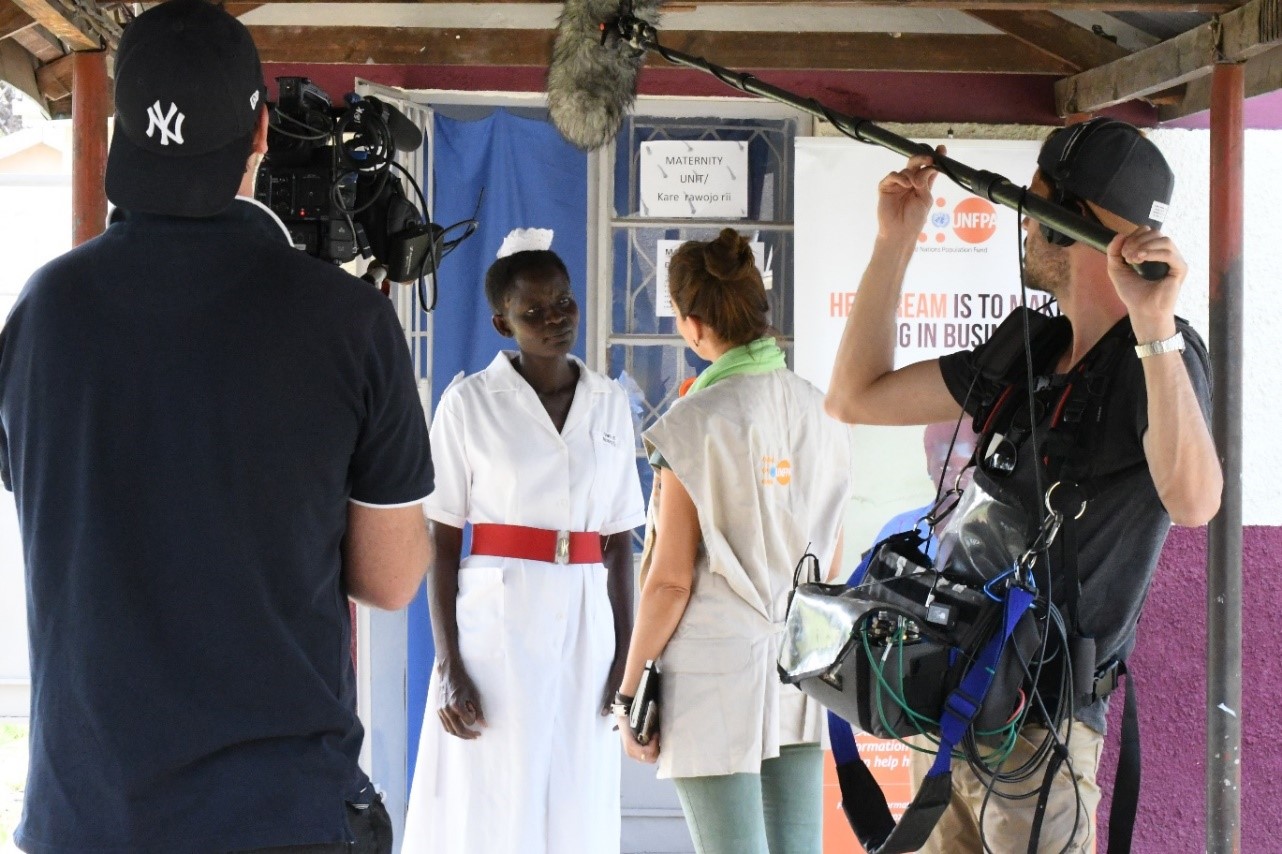Growing up as a little girl in Portugal, Catarina’s dream was to be a dancer and a choreographer. And as a passion, she chose to be many things; an actress, an author, a TV-host, a journalist, as well as a documentary filmmaker. Never did it cross her mind that one day; she would use this platform, talent and fame to advocate for equality and the right to reproductive health.
It all started in 2000, when she received a letter from the then UN Secretary General Kofi Annan inviting her to be UNFPA Goodwill ambassador. Today, Ms. Furtado is UNFPA’s longest serving Goodwill Ambassador and has shot several documentaries across the world on development issues in the areas of sexual and reproductive health, education, gender equality and human rights for her TV series, Principes do Nada where she is host. Ms Furtado also does Ted talks for young people and moderates debates on UNFPA’s mandate at global level.
Ms. Furtado was recently in Uganda to shoot a documentary on refugees. She visited Adjumani district where she documented UNFPA supported humanitarian response interventions, including midwifery programmes and ambulance services for refugee populations.
“I have been travelling all over the world to see the wonderful projects that UNFPA implements. Now, I am here (in Uganda) to follow the way UNFPA’s work benefits the refugees and the host communities in terms of reducing maternal and infant mortality and gender-based violence, child marriage and teenage pregnancies,” she said.
Ms. Furtado said she was fascinated with the way expectant mothers are treated at Mungula Health Centre IV with support of midwives and other health workers.
“I went to Mungula Health Centre IV and in Adjumani hospital and I realize there are many needs. I realized, and testify that without the support of UNFPA, things would be very difficult,” she says.

Ms. Furtado also appreciated UNFPA’s interventions on maternal health in humanitarian settings including provision of midwives, an ambulance and reproductive health commodities and supplies after the hospital administrator Mr. Michael Ojja revealed that maternal mortality at Adjumani Regional Referral Hospital dropped from 12 mothers in 2014 to two mothers in 2019.
“This means that the work of UNFPA is crucial and so is the work being done around family planning,” she says.
The Goodwill ambassador also appreciated Uganda’s all-inclusive refugee policy that allows for both refugees and host communities to access the same social services like schools and treatment in health facilities.
“This is the first place that I have seen a model that should be replicated where funds are being used for both locals and refugees so they can access the same social services. This is really well integrated and a very smart way of supporting refugees,” said Ms Furtado.
“This is the big message that I want to spread about Uganda’s way of supporting refugees,” she adds.
The UNFPA ambassador further advocates for increased access to family planning, even in humanitarian settings, as the best way to empower women, adding that with UNFPA supported interventions; she has seen women having children by choice, not by chance.
Uganda is one of the top ten countries in the world that hosts the largest number of refugees. As of January 31, 2020, according to UNHCR, the number of refugees in Uganda stood at 1,394, 678. Of these, 86 percent women and children below 18 years.
Since 2013, UNFPA has been working closely with the Government of Uganda, sister United Nations agencies, non-governmental organizations, community-based organizations and other partners to ensure that sexual and reproductive health is integrated into emergency programming.
Today, UNFPA plays a leading role in ensuring access to life-saving sexual and reproductive health (SRH) services; preventing and responding to gender-based violence (GBV); and empowering women, adolescent girls and young people in refugee hosting districts of Adjumani, Arua, Lamwo, Kampala, Kamwenge, Kiryadongo, Kikuube, Kyegegwa, Moyo, Rwamjwanja and Yumbe.
With support from the government of Denmark, The Netherlands, UN Central Emergency Fund (CERF) and UN Core resources, in 2019, UNFPA reached 179, 002 people living in humanitarian settings with Sexual and Reproductive Health, Gender Based Violence and information on HIV prevention. In the same year, a total of 14,903 births were attended by skilled personnel.
- Written by Evelyn Matsamura Kiapi


